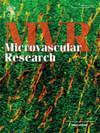Glial and blood-brain barrier cell-derived exosomes: Implications in stroke
IF 2.7
4区 医学
Q2 PERIPHERAL VASCULAR DISEASE
引用次数: 0
Abstract
Exosomes are small extracellular vesicles released by cells that play a pivotal role in intercellular communication, significantly influencing both the pathophysiology and potential treatment of ischemic stroke (IS). This review examines exosomes derived from key brain cell types, including microglia, astrocytes, oligodendrocytes, oligodendrocyte precursor cells (NG2+ cells), endothelial cells, and pericytes, emphasizing their molecular cargo and functional impact in IS. Microglia-derived exosomes regulate neuroinflammation, with M2-type exosomes exhibiting neuroprotective effects, while astrocyte-derived exosomes modulate pathways involved in pyroptosis and autophagy, influencing neuronal survival. Oligodendrocyte and NG2+ cell-derived exosomes contribute to remyelination, axonal growth, and inflammatory modulation. Endothelial and pericyte-derived exosomes play critical roles in BBB integrity, neurovascular remodeling, and drug transport across the BBB. This synthesis highlights recent advances in understanding how exosome-mediated communication impacts IS recovery and explores their translational potential for biomarker development and targeted therapies. By manipulating exosomal composition and delivery mechanisms, novel therapeutic strategies may emerge, offering hope for improved IS treatment outcomes.
神经胶质和血脑屏障细胞衍生的外泌体:对中风的影响
外泌体是细胞释放的小细胞外囊泡,在细胞间通讯中起关键作用,显著影响缺血性卒中(IS)的病理生理和潜在治疗。本文综述了来自主要脑细胞类型的外泌体,包括小胶质细胞、星形胶质细胞、少突胶质细胞、少突胶质细胞前体细胞(NG2+细胞)、内皮细胞和周细胞,强调了它们的分子货物和在IS中的功能影响。小胶质细胞来源的外泌体调节神经炎症,其中m2型外泌体具有神经保护作用,而星形胶质细胞来源的外泌体调节参与焦亡和自噬的途径,影响神经元存活。少突胶质细胞和NG2+细胞衍生的外泌体有助于髓鞘再生、轴突生长和炎症调节。内皮细胞和周细胞来源的外泌体在血脑屏障完整性、神经血管重塑和药物跨血脑屏障运输中发挥关键作用。本综述强调了外泌体介导的通讯如何影响IS恢复的最新进展,并探索了它们在生物标志物开发和靶向治疗方面的转化潜力。通过操纵外泌体组成和传递机制,可能会出现新的治疗策略,为改善IS治疗结果提供希望。
本文章由计算机程序翻译,如有差异,请以英文原文为准。
求助全文
约1分钟内获得全文
求助全文
来源期刊

Microvascular research
医学-外周血管病
CiteScore
6.00
自引率
3.20%
发文量
158
审稿时长
43 days
期刊介绍:
Microvascular Research is dedicated to the dissemination of fundamental information related to the microvascular field. Full-length articles presenting the results of original research and brief communications are featured.
Research Areas include:
• Angiogenesis
• Biochemistry
• Bioengineering
• Biomathematics
• Biophysics
• Cancer
• Circulatory homeostasis
• Comparative physiology
• Drug delivery
• Neuropharmacology
• Microvascular pathology
• Rheology
• Tissue Engineering.
 求助内容:
求助内容: 应助结果提醒方式:
应助结果提醒方式:


